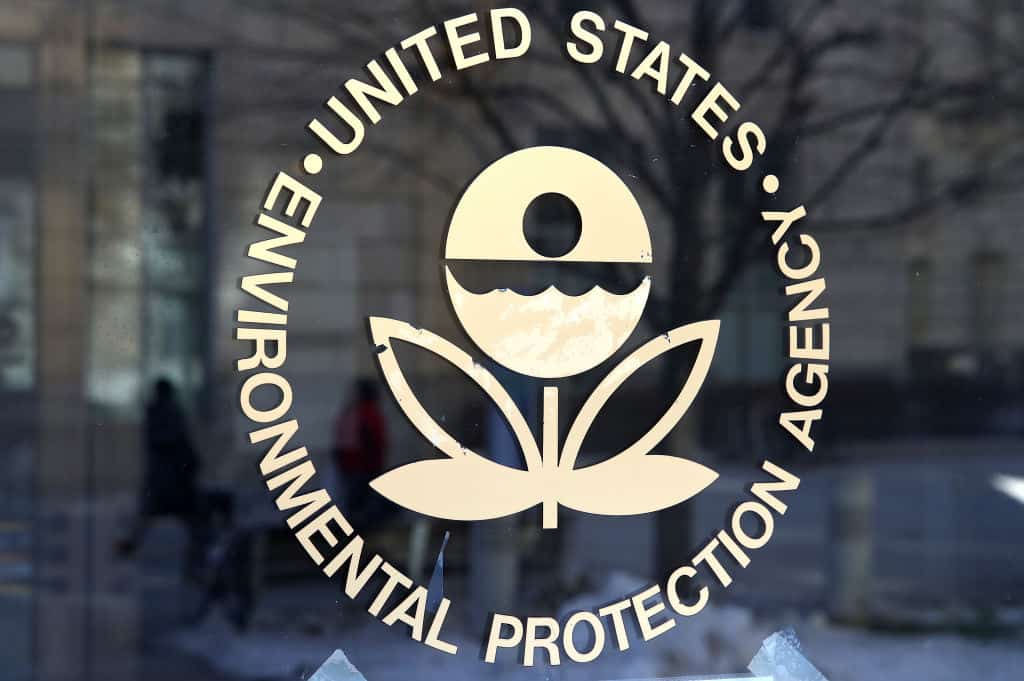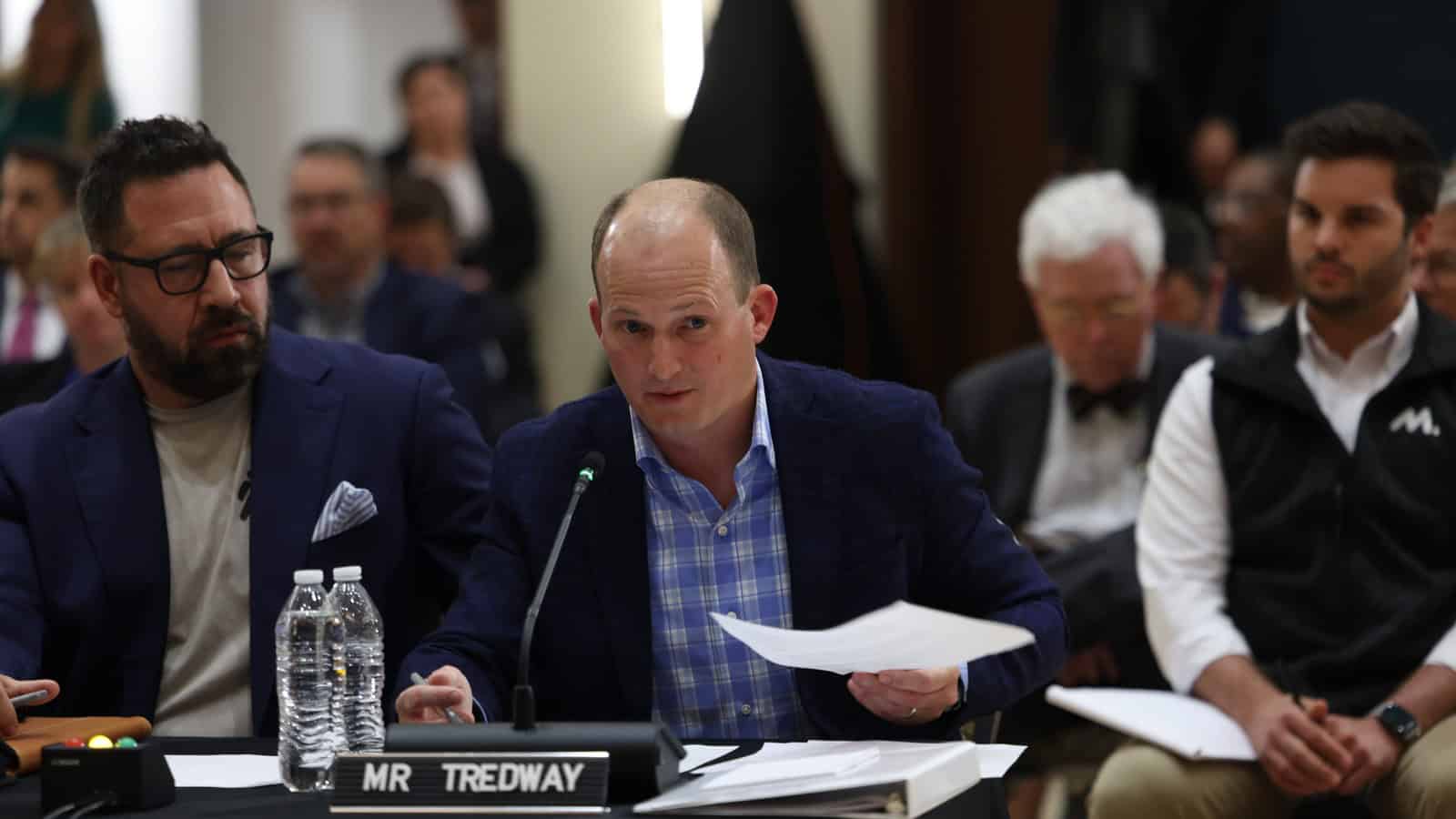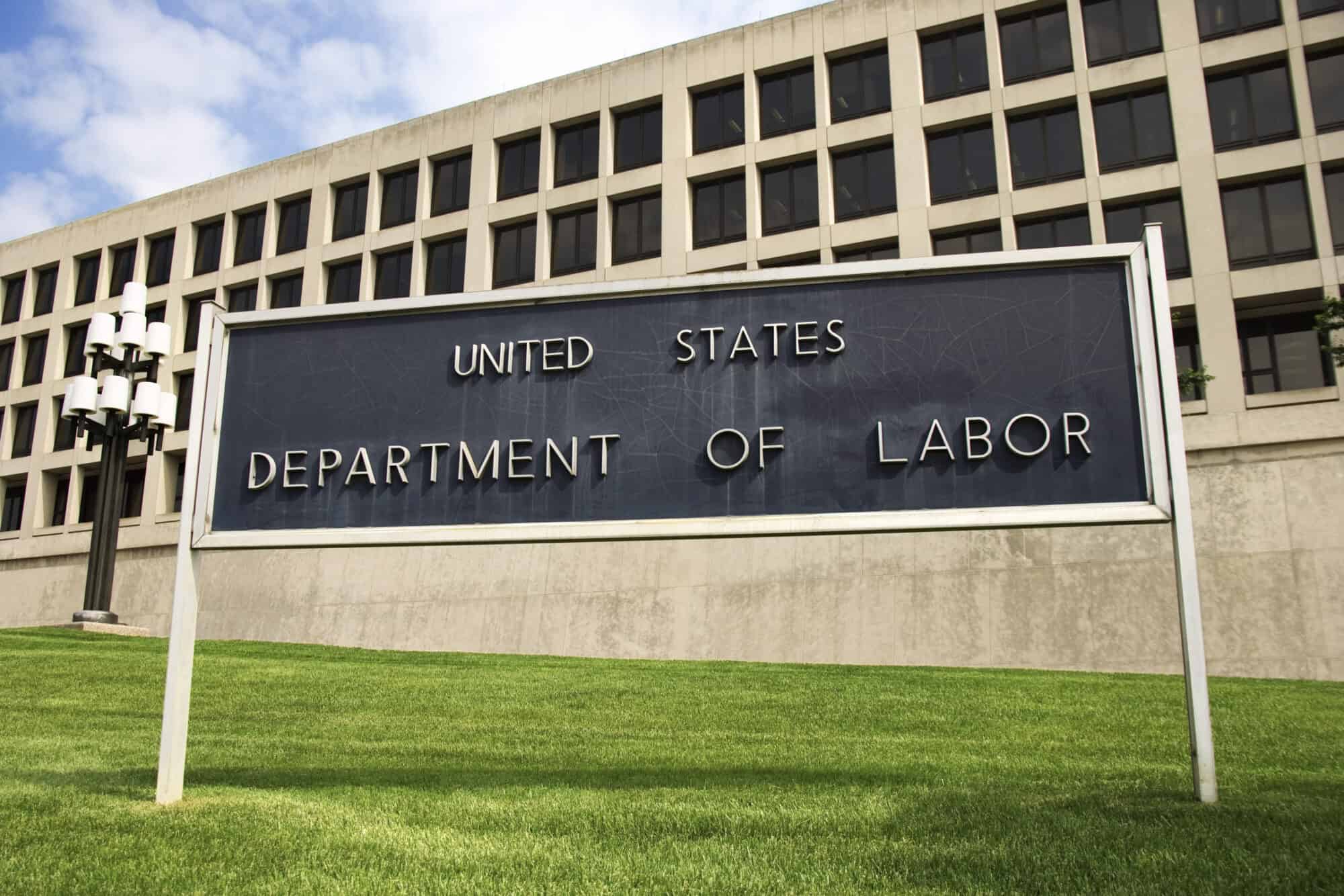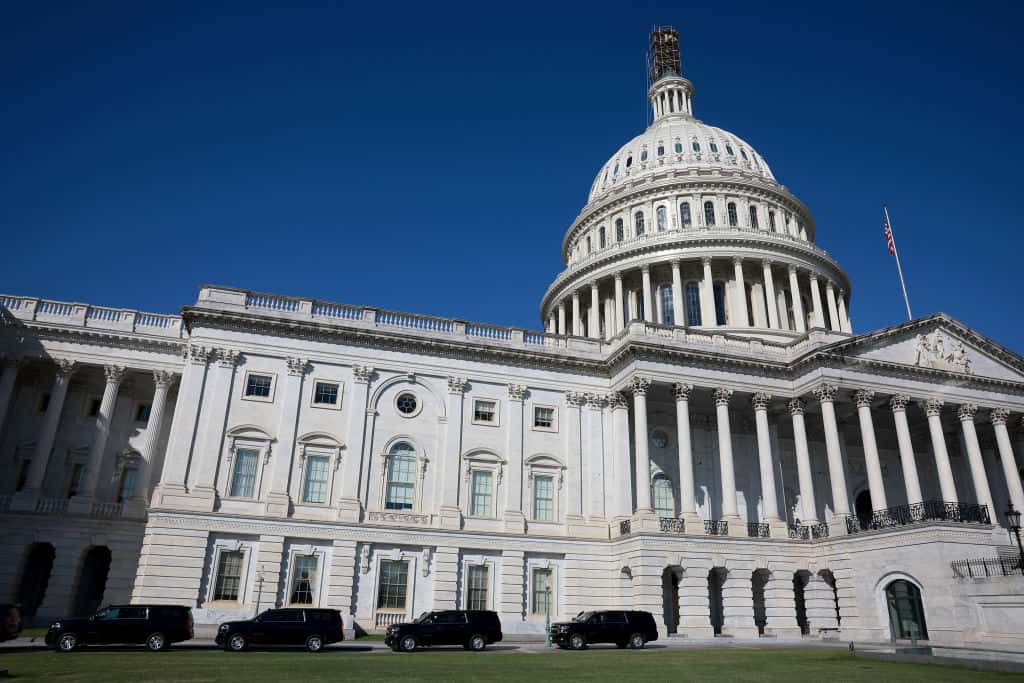NAM, ACC Challenge EPA’s National Drinking Water Rule

The NAM and the American Chemistry Council yesterday filed a petition challenging the Environmental Protection Agency’s first-ever national drinking water standard limiting the presence of six types of per- and polyfluoroalkyl substances, or PFAS.
What’s going on: The organizations are seeking to overturn the final rule—issued in April by the EPA—in the D.C. Circuit Court of Appeals on the grounds that it exceeds the agency’s authority under the Safe Drinking Water Act of 1974 and “is arbitrary, capricious and an abuse of discretion,” in violation of the Administrative Procedure Act.
- Under the rule, PFAS in municipal water systems are limited to near-zero levels. Systems nationwide will have three years to monitor for the chemicals and two subsequent years to install technology to reduce the compounds’ levels in the water.
- The water systems will (and, in fact, have already begun to) sue manufacturers to cover their costs. Meanwhile, plaintiffs’ attorneys are using the standard in product liability and greenwashing suits against manufacturers.
- PFAS are a diverse group of chemicals that have been used widely for decades due to their unique ability to douse fires and resist grease, stains and corrosion. Today they’re a key component in a wide range of critical products, from semiconductors, to the components of the electrical grid, to renewable-energy production equipment.
Why it’s problematic: The final regulation of PFAS “is wholly infeasible and threatens these vital substances’ continued application in manufacturing processes,” said NAM Chief Legal Officer Linda Kelly, adding that the agency’s rulemaking is based “on a deeply flawed cost-benefit analysis” and fails to follow Safe Drinking Water Act procedure and other statutory requirements.
- “In many instances, there is no viable alternative for these chemicals, and companies may be forced to change plans dramatically” to follow the new rule, NAM Managing Vice President of Policy Chris Netram said in April.
- “In everyday life, including emergency situations like a fire or operating room circumstance, there’s a real reliance on these products—it’s not just about job losses and costs but fundamental decisions that have widespread ramifications,” Netram added recently.
What should be done: The rule should be vacated as soon as possible, the NAM and the ACC told the court.
Manufacturers Challenge Infeasible, Costly Water Standard
The NAM Legal Center and ACC File Suit to Block the Rule
Washington, D.C. – Today, the National Association of Manufacturers, joined by the American Chemistry Council, filed a petition in the D.C. Circuit Court of Appeals challenging the Environmental Protection Agency’s final rule setting individual standards for six per- and polyfluoroalkyl substances, also known as PFAS, in municipal water systems.
“Manufacturers support commonsense regulations on PFAS that recognize the criticality of these substances across several industrial sectors—for many of these critical applications, there are no viable alternatives,” said NAM Chief Legal Officer Linda Kelly. “What the EPA did, however, was to bulldoze ahead with standards that set an acceptable level for PFAS at near zero—which is wholly infeasible and threatens these vital substances’ continued application in manufacturing processes. In doing so, the EPA relied on a deeply flawed cost-benefit analysis and failed to follow the clear-cut statutory procedures required by the Safe Drinking Water Act, among other substantive and procedural deficiencies. The NAM Legal Center is filing suit to overturn this unachievable standard and protect manufacturing operations and jobs across the country.”
PFAS are a diverse group of chemicals essential to modern life, including in the transformers used to power electric grids; in the semiconductors and solar components needed for clean energy transition; and in the aircraft, munitions, fire suppression systems and communication devices required for national security.
-NAM-
The National Association of Manufacturers is the largest manufacturing association in the United States, representing small and large manufacturers in every industrial sector and in all 50 states. Manufacturing employs nearly 13 million men and women, contributes $2.89 trillion to the U.S. economy annually and accounts for 53% of private-sector research and development. The NAM is the powerful voice of the manufacturing community and the leading advocate for a policy agenda that helps manufacturers compete in the global economy and create jobs across the United States. For more information about the NAM or to follow us on Twitter and Facebook, please visit www.nam.org.
NAM, Partners File Opening Brief in Suit Against EPA

On Thursday, the NAM, joined by other business groups, filed the opening brief in their pending lawsuit against the Environmental Protection Agency.
What’s going on: In March, the groups petitioned the D.C. Circuit to review the EPA’s reconsideration of the National Ambient Air Quality Standards for fine particulate matter (or PM2.5), which lowers the allowable level to 9 micrograms per cubic meter of air from 12, a 25% reduction. The agency handed down the final, tightened rule in February.
- In their brief, the coalition argues that the EPA lacks the authority under the Clean Air Act—the law that authorizes it to establish the NAAQS—to “reconsider” a decision made in 2020 to not lower the PM2.5 standard; that the agency failed to take into account the cost and feasibility of a tightened standard; and that it failed to give a “reasoned explanation for key aspects of its decision.”
- The groups participating in the suit with the NAM are the U.S. Chamber of Commerce, the American Chemistry Council, the American Petroleum Institute, the American Forest & Paper Association, the American Wood Council, the National Mining Association and the Portland Cement Association.
Why it’s important: The tighter NAAQS rule could result in many parts of the U.S. being designated as in nonattainment, which would trigger significant new costs for manufacturers and others attempting to obtain air permits in those locations.
- Many of these areas “are indisputably handicapped in their ability to reduce emissions to meet the new NAAQS” due to factors beyond municipalities’ and manufacturers’ control (i.e., wildfires, which affect most of the contiguous U.S. at some point each year).
- The new rule could also prevent manufacturers from building or modifying facilities in certain areas, undermining the Biden administration’s own “Investing in America” agenda, as it would stifle investment in manufacturing and kill—not create—well-paying manufacturing jobs.
What should be done: The rule should be vacated as soon as possible, the groups told the court.
Texas Sues to Block DOL Overtime Rule

Texas has filed suit in an effort to vacate a Biden administration regulation that would make millions more workers eligible for overtime pay (Reuters, subscription).
What’s going on: “Republican Texas Attorney General Ken Paxton in a complaint filed in Sherman, Texas, federal court on Monday said the rule violates federal wage law by basing eligibility for overtime on how much workers are paid rather than the duties they perform.”
- The expanded rule, released by the Department of Labor in late April, violates states’ constitutional right to structure the pay of state employees and thus how to allocate their budgets, Texas said.
- Attorneys for the Lone Star State added that the regulation—which the department has said would make about 4 million additional workers eligible for overtime pay—will force states to “eliminate or alter employment relationships and cut or reduce services and programs.”
- Also on Monday in Texas, software company Flint Avenue filed a suit saying “the rule is arbitrary and capricious, and that the DOL lacked the authority to issue the change” (Bloomberg Law, subscription).
What it would do: The expanded rule drastically bumps up the salary threshold for determining a worker’s overtime pay eligibility.
- Under it, starting in 2025, most employees making less than $58,656 will be owed time-and-a-half wages when they work more than 40 hours in a single workweek (Bloomberg Law, subscription).
- The current threshold is about $35,500.
Why it’s important: The new overtime rule “places new constraints on employers, reduces flexibility for the workers who will be reclassified and may force companies to make painful choices that limit both job creation and growth opportunities available to employees,” NAM Managing Vice President of Policy Chris Netram said in April.
- “This … regulatory hurdle will complicate manufacturers’ efforts to fill the millions of jobs our industry is projected to create within a decade.”
Manufacturers Look to Sheinbaum to Bolster U.S.–Mexico Trade Ties
Washington, D.C. – Following projections that Mexico has elected Claudia Sheinbaum Pardo as its next president, National Association of Manufacturers President and CEO Jay Timmons released the following statement:
“Today is a historic day for Mexico, and manufacturers across the U.S. are hopeful that President-elect Sheinbaum will continue to work to strengthen our countries’ mutually beneficial trading relationship. Mexico is the U.S.’s second-largest national trading partner, and we look to President-elect Sheinbaum to uphold the rules set forward in the United States–Mexico–Canada Agreement. The USMCA has proven itself as a force for growth, broadening manufacturers’ access to North American markets, leveling the playing field and modernizing rules to promote fair competition, particularly in the 21st-century digital economy.
“We look forward to working with the Sheinbaum administration to ensure continuity under the USMCA and address our shared challenges at the border.”
-NAM-
The National Association of Manufacturers is the largest manufacturing association in the United States, representing small and large manufacturers in every industrial sector and in all 50 states. Manufacturing employs nearly 13 million men and women, contributes $2.89 trillion to the U.S. economy annually and accounts for 53% of private-sector research and development. The NAM is the powerful voice of the manufacturing community and the leading advocate for a policy agenda that helps manufacturers compete in the global economy and create jobs across the United States. For more information about the NAM or to follow us on Twitter and Facebook, please visit www.nam.org.
PA Manufacturer: Preserve “Keystone” Tax Provisions

The U.S. tax code is a keystone of our nation’s economic competitiveness, Erie Molded Packaging President Tom Tredway told the House Ways and Means Tax Subcommittee at a field hearing on Monday. But pro-growth tax provisions have begun expiring, with more tax increases on the way next year—so that keystone has started to crack, “weakening the entire structure” of the country.
What’s going on: Tredway gave testimony at a hearing in his hometown of Erie, Pennsylvania, the namesake of his 42-year-old, family-owned custom injection molded parts and packaging solutions company.
- Tredway told Ways and Means Committee Chairman Jason Smith (R-MO), Tax Subcommittee Chairman Mike Kelly (R-PA) and others of the negative effects his business has seen since the expiration of three provisions from the 2017 Tax Cuts and Jobs Act: immediate expensing for domestic research and development, enhanced interest deductibility and full expensing.
- And Tredway put the committee on alert: additional TCJA expirations are scheduled for the end of 2025, and small manufacturers “will be disproportionately harmed” by congressional inaction to preserve these vital policies.
A winning formula: The expired provisions—as well as other, soon-to-expire measures—were like rocket fuel for manufacturers and the rest of the economy.
- “In the years following TCJA, Erie Molded was able to invest nearly $7 million in new capital equipment purchases thanks to full expensing,” Tredway said. “Along with this much-needed equipment, we were able to create new positions across our team, and we were able to deliver higher quality products faster to our customers.”
But now… Tredway’s company has had to delay important equipment purchases, and last year, its taxable income “was almost six figures higher” than Tredway had anticipated.
- What’s more, when the 20% pass-through deduction—currently taken by companies in which profits pass through to the owner and are thus taxed at the individual rate—expires at the end of 2025, Erie Molded Packaging will see another tax hike it can ill afford, “severely hampering [the company’s] growth trajectory.”
What should be done: Congress must pass the Tax Relief for American Families and Workers Act as soon as possible—and act to prevent tax hikes in 2025, Tredway told those at the hearing.
- “I urge every member of this committee to preserve these and the other pro-growth provisions, which allow manufacturers to function as the backbone of our economy and compete on a global scale.”
NAM Files Suit to Block OSHA “Walkaround” Rule

The NAM and allied groups are challenging the U.S. Occupational Safety and Health Administration’s recently finalized “walkaround” rule.
What’s going on: On Tuesday, the NAM, joined by like-minded business organizations, filed a lawsuit in the Western District of Texas to block OSHA’s final rule revising the Worker Walkaround Representative Designation Process. That rule was finalized in April and is set to go into effect May 31.
- The new rule would allow nonemployees—including union representatives, plaintiffs’ attorneys, community organizers and even competitors—to accompany OSHA inspectors on workplace safety inspections.
Why it’s a problem: Not only does the final rule fail to advance the agency’s mission of ensuring workplace safety, but it is beyond the scope of OSHA’s authority. What’s more, it violates businesses’ rights, the NAM said.
- The new regulation “infringes on manufacturers’ right to exclude others from their property, threatens new liabilities and risks compromising manufacturers’ intellectual property. The NAM Legal Center is filing suit to prevent this harm,” NAM Chief Legal Officer Linda Kelly said.
NAM to Senate: Administration March-in Proposal Undermines IP, Innovation

The Biden administration’s push to invoke “march-in” rights is unlawful and would have “disastrous consequences” for the United States if enacted, the NAM told the Senate Tuesday.
What’s going on: Ahead of a Senate Judiciary Committee hearing on intellectual property in the biopharmaceutical sector, the NAM warned of the potentially dire consequences of the proposed march-in framework issued by the National Institute of Standards and Technology.
- The NIST proposal would allow the federal government to “march in” and seize manufacturers’ patent rights if an innovation was developed in any part with federal dollars.
- In the biopharmaceutical sector and other innovative industries, federal funding plays an important role in supporting early-stage research—but further R&D, product development and commercialization require hundreds of millions to billions of dollars in additional capital from investors and established companies.
- Robust IP protections ensure that manufacturers can bring innovative products to consumers.
Why it’s a problem: March-in would violate manufacturers’ IP rights and prevent investment into lifesaving and life-changing technologies, according to NAM Vice President of Domestic Policy Charles Crain.
- “Allowing march-in based on the price of a product or technology, as the NIST guidance proposes … would undermine manufacturers’ IP rights and have sweeping ramifications for innovation in the United States and America’s world-leading innovation economy,” Crain told the committee.
- Committee member Sen. Chris Coons (D-DE) agreed during the hearing that the proposal is fundamentally flawed. “Any company [that] invents [anything] or any researcher who invents anything is now open to the federal government saying, ‘I want that, and I don’t agree with the price you’re setting for it,’” he said.
What should happen: Congress must stop NIST’s overreach, Crain said.
- “Policies that threaten IP protections, like NIST’s proposed march-in guidance, will cede one of our greatest advantages to our competitors. Manufacturers [look forward] to work[ing] with the committee to ensure the U.S. maintains the strongest IP protections in the world in order to spur the discovery and commercialization of inventions that improve health and quality of life for all people.”
Manufacturers Challenge OSHA’s Unlawful Walkaround Rule
The NAM Legal Center Joins Industry Groups Seeking to Block Rule
Washington, D.C. – Today, the National Association of Manufacturers, joined by other business groups, filed suit in the Western District of Texas to challenge the Occupational Safety and Health Administration’s final rule amending the Worker Walkaround Representative Designation Process (Walkaround Rule).
The Walkaround Rule will allow an unlimited number of third parties, such as union representatives, plaintiffs’ attorneys and community organizers, to accompany OSHA inspectors on safety inspections.
“OSHA’s rule does nothing to advance its mission of improving workplace safety,” said NAM Chief Legal Officer Linda Kelly. “This rule is well beyond the scope of OSHA’s authority, and it infringes on manufacturers’ right to exclude others from their property, threatens new liabilities and risks compromising manufacturers’ intellectual property. The NAM Legal Center is filing suit to prevent this harm.”
Background:
- For more than 50 years, OSHA’s walkaround regulation authorized only an employee of an employer to serve as another employee’s representative during an OSHA inspection.
- In 2013, then-Deputy Assistant Labor Secretary Richard Fairfax issued a letter—commonly referred to as the Fairfax Memo or Sallman Letter—to a member of the Service Workers International Union, which stated that a nonemployee affiliated with a union or community organization could serve as a representative of employees during an OSHA inspection at a worksite without a collective bargaining agreement.
- In 2017, a trade group challenged the Fairfax Memo as unlawfully issued outside the notice-and-comment process and inconsistent with OSHA’s regulation that authorized only an employee of an employer to serve as another employee’s representative during an OSHA inspection.
- A federal court in Texas agreed with the trade group, and the Trump administration later rescinded the memo.
- In August 2023, OSHA released the proposed Walkaround Rule, and the NAM submitted comments urging OSHA to withdraw it.
-NAM-
The National Association of Manufacturers is the largest manufacturing association in the United States, representing small and large manufacturers in every industrial sector and in all 50 states. Manufacturing employs nearly 13 million men and women, contributes $2.89 trillion to the U.S. economy annually and accounts for 53% of private-sector research and development. The NAM is the powerful voice of the manufacturing community and the leading advocate for a policy agenda that helps manufacturers compete in the global economy and create jobs across the United States. For more information about the NAM or to follow us on Twitter and Facebook, please visit www.nam.org.
NAM, State Partners Call for Immediate Senate Action on Tax Bill

The Senate should immediately pass the Tax Relief for American Families and Workers Act, the NAM and its state partners told congressional leaders this week.
What’s going on: The NAM—along with 47 state manufacturing associations—on Monday continued its longtime, ongoing advocacy for the tax bill, which would restore three sector-crucial tax provisions: immediate expensing for domestic research and development expenses, enhanced interest deductibility on business loans and 100% accelerated depreciation for capital investments.
- “This critical legislation will support the ability of manufacturers in America to create jobs, invest in our businesses, give back to our communities and effectively compete in the global economy,” the groups said.
Why it’s important: If Congress fails to restore these key tax provisions, America’s competitiveness on the world stage will be under threat, they continued.
- “Without tax policies that encourage R&D and capital investment, countries with more favorable tax systems are capturing job-creating manufacturing investments.”
- China, for example, provides a 200% “super deduction” for companies’ R&D expenses, which is 10 times more than the U.S. gives. In 2022, the first full year following the expiration of immediate R&D expensing in the U.S., China’s R&D growth was three times that of the U.S.
What’s next: The Senate must not delay, the associations said. Congress must pass the Tax Relief for American Families and Workers Act—now.
The last word: “The breadth and depth of support for these critical, pro-growth tax provisions throughout the manufacturing industry shows the importance of immediate congressional action,” said NAM Vice President of Domestic Policy Charles Crain. “With additional damaging tax increases scheduled for next year, manufacturers cannot afford further delays.”
